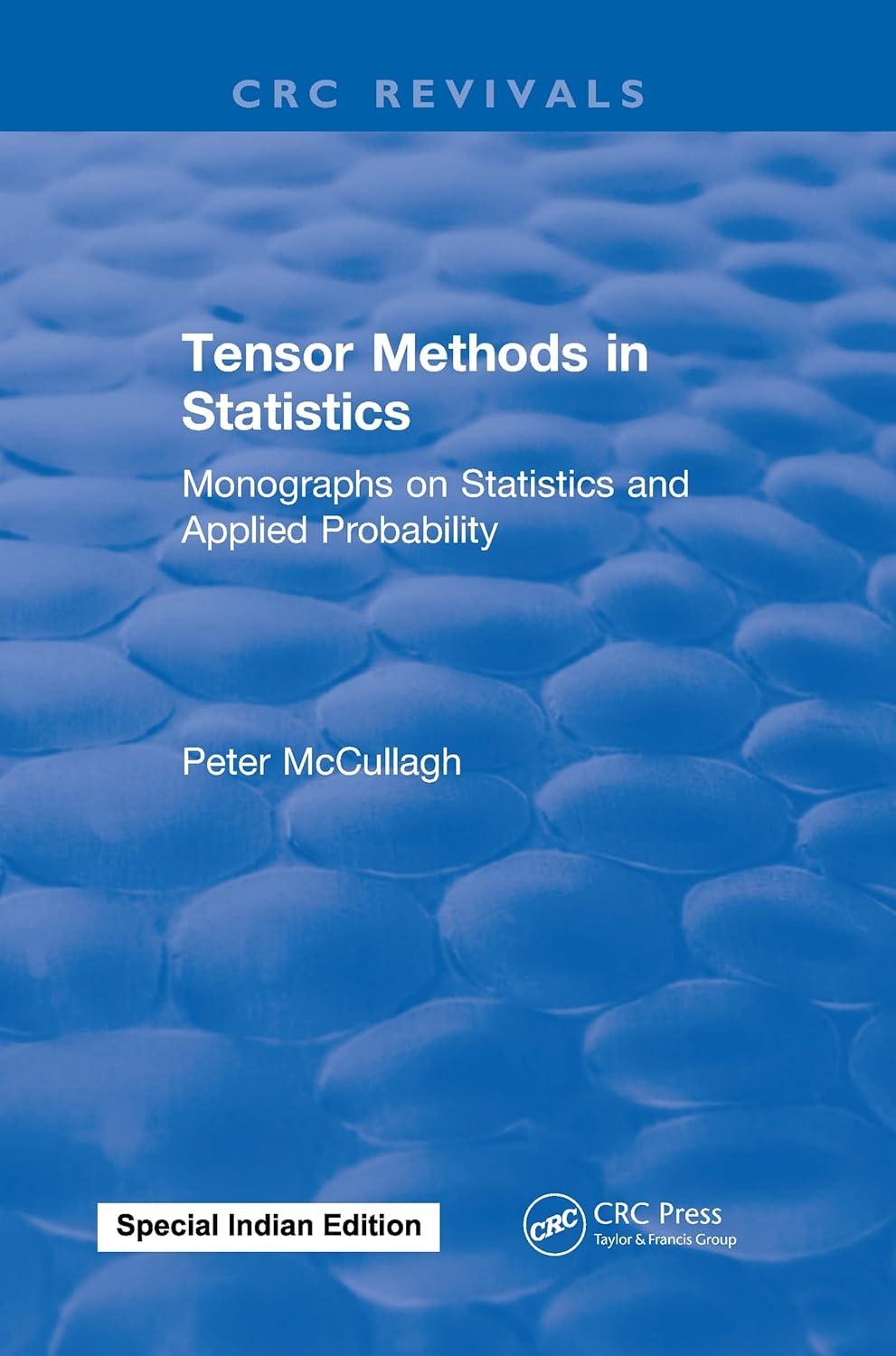More generally, using the notation of the previous exercise, show that, for i > j > ,
Question:
More generally, using the notation of the previous exercise, show that, for i
> j > κ,
∫ hi (x)hj (x)hk (x)ϕ (x)dx = i!j!k!
{
1 2 (j+k−i)}!{
1 2 (i+k−j)}!{
1 2 (i+j−k)}!
when j+k−i is even and non-negative, and zero otherwise, (Jarrett, 1973, p. 26).
Fantastic news! We've Found the answer you've been seeking!
Step by Step Answer:
Related Book For 

Tensor Methods In Statistics Monographs On Statistics And Applied Probability
ISBN: 9781315898018
1st Edition
Authors: Peter McCullagh
Question Posted:





